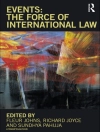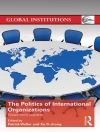This last title in the series covers the most important findings of the five years EU sponsored ANTICORRP project dealing with corruption and organized crime.How prone to corruption are EU funds? Has EU managed to improve governancein the countries that it assists? Using the new index of public integrity and avariety of other tools created in the project this issue looks at how EU funds andnorms affected old member states (like Spain), new member states (Slovakia, Romania), accession countries (Turkey) and the countries recipient of developmentfunds (Egypt, Tanzania, Tunisia). The data covers over a decade of structuraland development funds, and the findings show the challenges to changing governanceacross borders, the different paths that each country has experiencedand suggest avenues of reforming development aid for improving governance.
عن المؤلف
Prof. Alina Mungiu-Pippidi, Ph D, Director of the European Research Centre for Anti-Corruption and State-Building at the Hertie School of Governance Berlin, Germany Dr. Jana Warkotsch, Jana Warkotsch has coordinated this research working group on behalf of German Institute for Global and Area Studies (GIGA)












